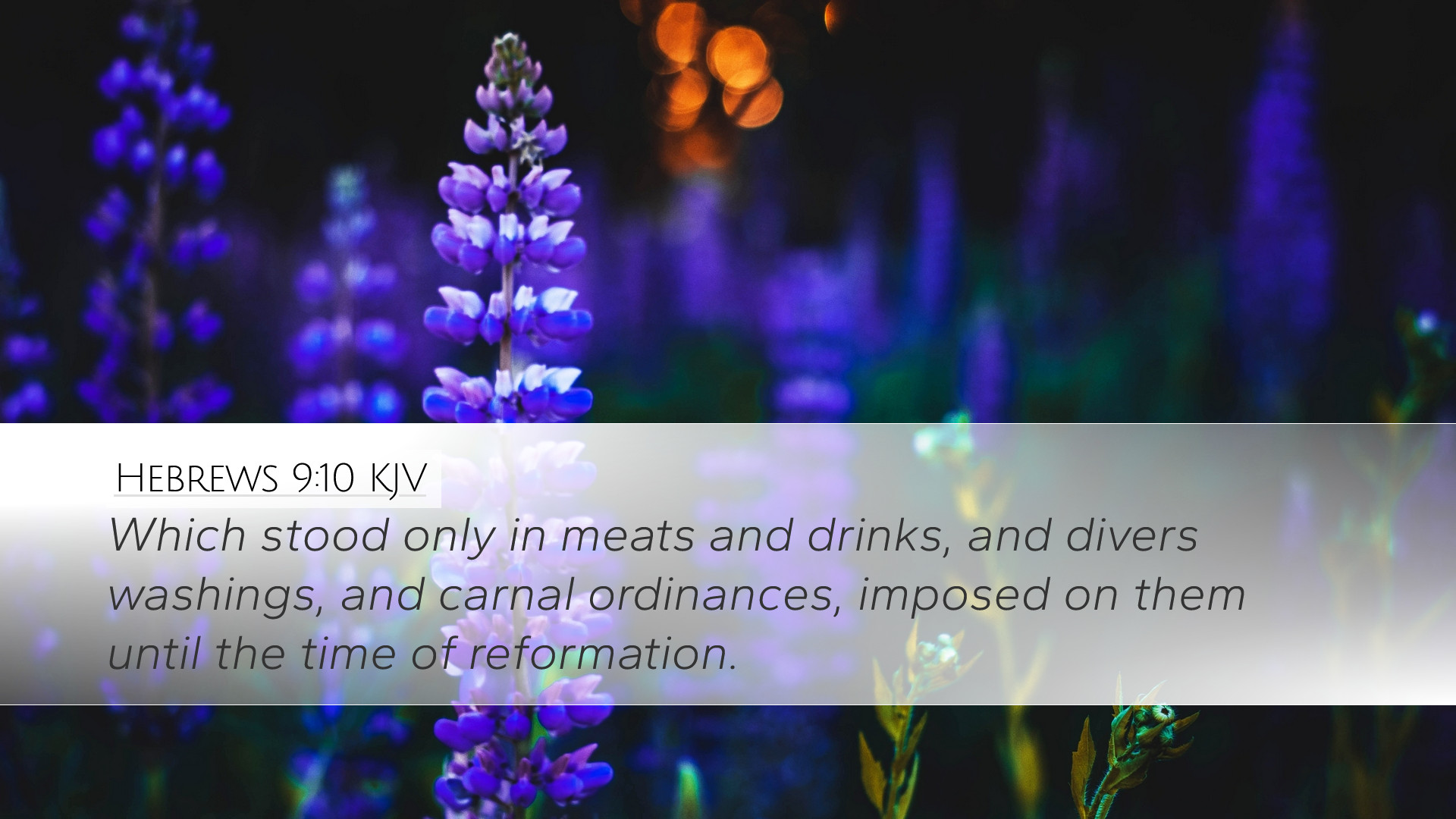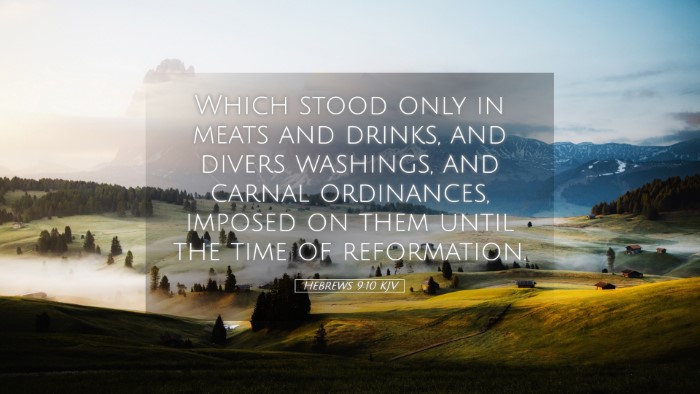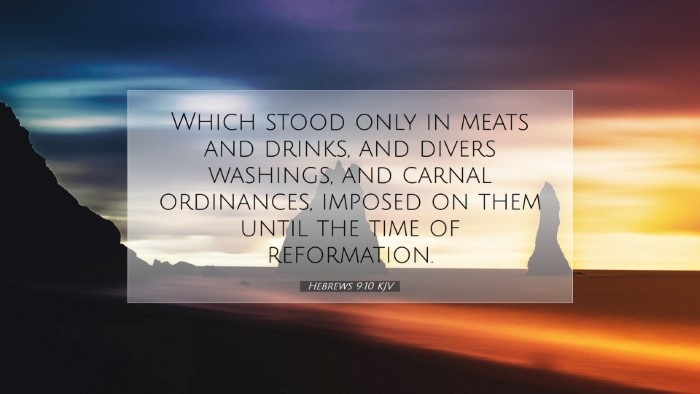Commentary on Hebrews 9:10
Verse: "Which stood only in meats and drinks, and divers washings, and carnal ordinances, imposed on them until the time of reformation." (Hebrews 9:10)
Introduction
The Epistle to the Hebrews presents a profound theological exposition of the superiority of Christ and His covenant. In Hebrews 9:10, the author reflects upon the temporary nature of the Old Covenant practices, emphasizing their limitations in light of the coming "time of reformation" inaugurated by Christ's sacrificial work. This commentary synthesizes insights from notable public domain scholars to elucidate the depth of this passage.
Contextual Background
The verse belongs to a larger argument contrasting the Old Covenant with the New Covenant established by Christ. The author of Hebrews seeks to affirm the validity of the New Covenant while highlighting the ineffective nature of the ceremonial laws and rites that were central to the Jewish faith before Christ’s coming.
Historical Importance
The ceremonial laws of the Old Testament, including various sacrifices, dietary laws, and ritual purity laws, were designed to maintain a distinction between the sacred and the profane. These laws were significant for the Israelites as a way of expressing their covenant relationship with God but were inherently limited and could not achieve true spiritual redemption.
Detailed Analysis
Meaning of "Which stood only in meats and drinks..."
Matthew Henry notes that the mention of “meats and drinks” refers to the dietary laws that governed Jewish life. These laws were intended for ceremonial purity and were part of the old way of worship, which only served a limited purpose. They were tangible expressions of obedience but could not cleanse the conscience or bring salvation.
“...and divers washings...”
Albert Barnes explains that "divers washings" refers to various ablutions required by the Law of Moses for physical cleansing. These washings pointed towards a spiritual truth that needed fulfillment in Christ. They symbolized an external cleanliness that did not translate into an internal transformation of the heart.
“...and carnal ordinances...”
Adam Clarke distinguishes “carnal ordinances” as the regulations concerning bodily ceremonies and rites of the Levitical system. Clarke emphasizes that these ordinances were not designed to alter the hearts of the worshipers but served as outward signs that pointed toward the greater spiritual realities found in Christ.
“...imposed on them until the time of reformation.”
The phrase "until the time of reformation" signals a shift in God’s redemptive plan. Matthew Henry identifies this "time of reformation" as the advent of Christ, who brings a transformative new covenant promoting true holiness and spiritual renewal. Albert Barnes elaborates that this reformation refers to the renovation of the spiritual state of humanity through the atoning work of Jesus, who fulfills the Law's righteous requirements.
Theological Insights
- Transition from Old to New: The passage demonstrates the thematic transition from the shadow of the Old Covenant to the substance found in Christ. Believers are no longer bound to rituals that cannot transform their hearts.
- Symbolism and Fulfillment: The sacrifices and rituals of the Law served to foreshadow the ultimate sacrifice of Christ. The "time of reformation" signifies not just a change in practices but a profound change in the relationship between God and humanity.
- Call to Spiritual Depth: The author encourages readers to pursue a deeper understanding of their faith beyond mere external compliance to laws. The New Covenant invites believers into a transformative relationship with Christ.
Application for Believers
This verse prompts believers to reflect on the sufficiency of Christ’s sacrifice. As followers of Christ, they are called to live not by external regulations but by an internal guide provided through the Holy Spirit. The rituals of the past serve as reminders of what has been fulfilled and the newness of life available in Christ.
For Pastors and Students
Pastors can leverage this passage to teach congregations about the importance of understanding the scriptures' context. It encourages an emphasis on spiritual depth rather than mere compliance with religious traditions. Students and theological scholars should analyze this passage to appreciate the continuity and discontinuity between the covenants, enriching their understanding of biblical theology.
Conclusion
The analysis of Hebrews 9:10 through the lens of public domain commentaries reveals profound insights into the transition from the Old Covenant to the New Covenant. The ceremonial laws served a purpose but ultimately pointed to Christ, who fulfills God’s redemptive plan. Believers are called to embrace this truth and live in the fullness of the covenant established through Christ's sacrifice.


